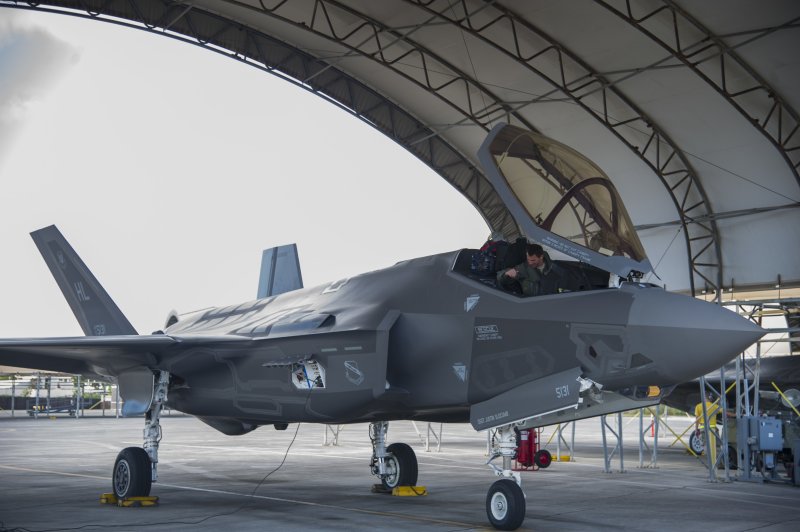The U.S. Air Force appointed Brig. Gen. Bobbi Jo Doorenbos to lead a team to investigate ongoing oxygen deprivation and other physiological incidents like those that temporarily grounded all F-35 jets, like the one pictured here, flying at an airbase in Arizona. File Photo by Tech. Sgt. Heather Redman/U.S. Air Force
Jan. 22 (UPI) -- The U.S. Air Force has created a new team to record and research ongoing cases of oxygen deprivation and other physiological incidents, the service announced Monday.
Brig. Gen. Bobbi Jo Doorenbos will lead the Unexplained Physiologic Events Integration Team, which will serve to identify solutions to prevent or minimize such issues.
"As part of the integrated effort to address physiological events, the Air Force is providing more resources to understand UPEs, standardize response actions to such events and assess options for more robust aircrew training to recognize and respond to these events," said Doorenbos.
Physiological events occur when air crew experience symptoms resulting from factors such as hypoxia, hypocapnia, hypercapnia or disorientation, which can hinder their ability to fly effectively.
The Air Force temporarily grounded all F-35 jets flying at an airbase in Arizona in June after pilots reported oxygen deprivation in five incidents.
In each case, the backup oxygen system worked and the pilot safely landed the plane.
The Navy also experienced hypoxia-related incidents when two pilots died after their T-45C Goshawk training jets crashed in October.
The Air Force said physiological events are rare, but heightened awareness has led to an increase of reported incidents.
"The probability that a pilot will experience a physiological event is less than 1 percent per year," Doorenbos said. "Still, we are aggressively addressing these events and communicating with aircrew so they remain confident in their aircraft and weapon systems."















